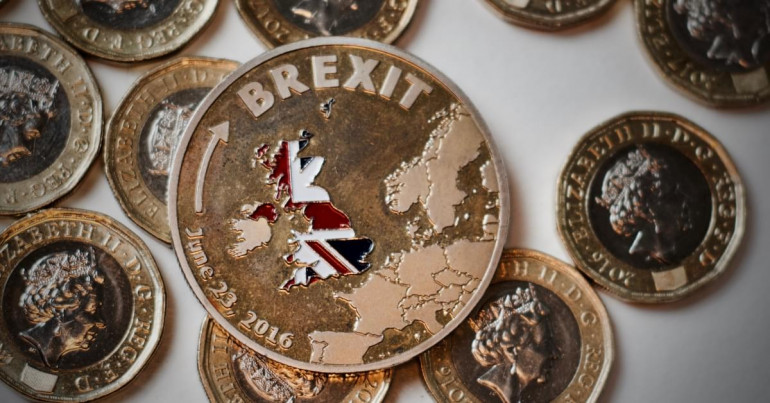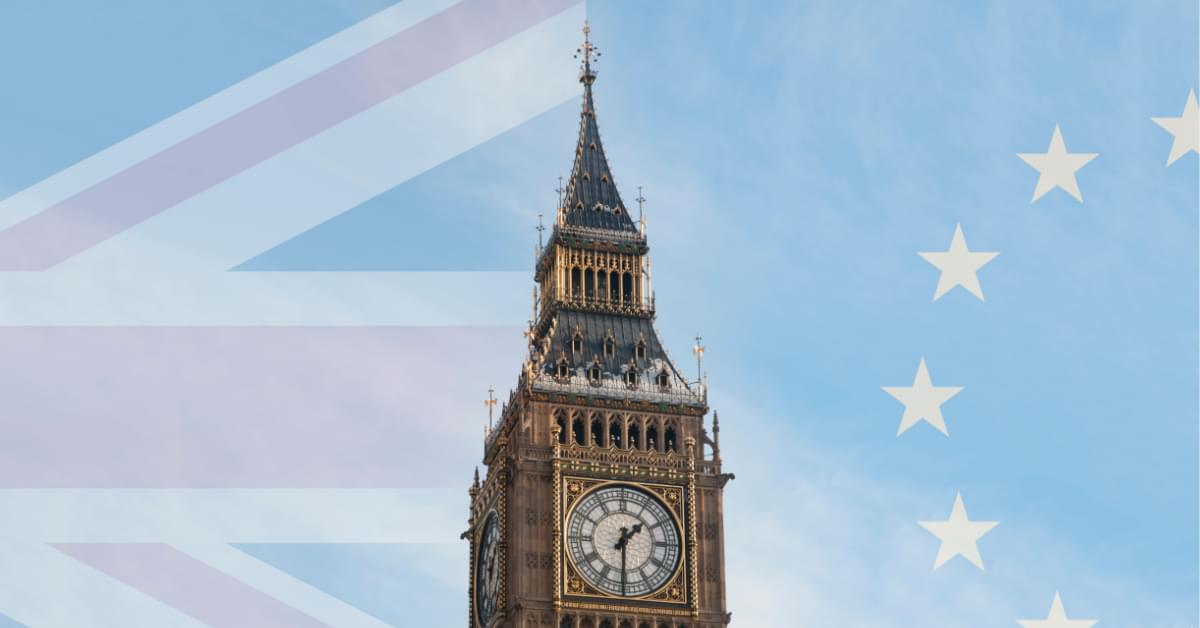
Brexit was the withdrawal of the United Kingdom from the European Union, which happened on 31st January 2020 after a referendum held by then-Prime Minister David Cameron.
Aside from any analysis of the reasons for the referendum, it is generally agreed that Brexit was a surprise outcome of the 2016 vote, with 51.89% of the vote going in favour of leaving, causing David Cameron to resign immediately. Following the result, hasty plans were made to leave the EU, and from 2016 to 2020, fears of a no-deal Brexit were high. Multiple failed attempts were made to reach a deal until the Brexit withdrawal agreement was signed on 24th January 2020.
Brexit has undoubtedly affected the UK economy. There are clear positives and negatives, but the country is still divided on whether it has been an overall success or failure. There is also speculation on whether it will benefit the UK in the future, or whether the UK is bound for a decline. We take a look at the main areas that Brexit has impacted and weigh up the positives and negatives.
It’s important to remember that naturally, in the short term, the effects of such drastic changes will often be negative from the fallout of the event. As the country develops outside the European Union, the potential benefits and unseen disadvantages may begin to show.

Borders and immigration
Perhaps the most obvious effect is the change to the UK borders, which have become more restrictive. It means that there are greater regulatory barriers and increased paperwork, essentially making it harder to enter the country. However, despite this, immigration levels have not been reduced, and some reports claim that since the end of the Covid-19 lockdowns, immigration has significantly increased.
Even travelling has become slightly more complicated, which has affected the tourism sector. Covid-19 was naturally a more significant blow, which covered any potential problems that Brexit might have had, but it’s still unclear if there has been a change in sentiment for tourism to the UK. There is also a concern that rising costs as a result of Brexit will have an effect on the tourism industry, and holidaymakers may choose a cheaper and more accessible destination in Europe.
Trade and market access
As a result of the leave, the UK left the EU’s Single Market and Customs Union, which has increased the amount of customs checks and paperwork required for cross-border trade. Research from The Economic and Social Research Institute has stated that there was a “reduction in the UK to EU goods trade by 16% and trade from EU to the UK by 20%” in the first year post-Brexit.
The changing of the border has also resulted in the implementation of new tariffs and quotas on certain goods. The UK has negotiated a free trade agreement called the Trade and Cooperation Agreement, which “sets out preferential arrangements in areas such as trade in goods” and other areas such as digital trade.
The benefits of this severed trade could be that the UK is now more open to trade outside of the EU, and can negotiate its own trade agreements with other countries around the world. By pursuing independent trade deals, instead of deals within the EU, the UK could potentially boost its own trade networks, and establish greater independence in the world.
Being outside of the EU also offers the UK more flexibility regarding changes to the global economy. With potential upcoming headwinds, it could be argued that the UK is now more agile when it comes to making decisions in forming economic strategies.
Agriculture
Increased red tape has made it so that trade naturally takes longer, which in the agriculture sector is dangerous, as a day’s worth of revenue can be lost for a farmer or business if the product is delayed by only a few days.
Brexit has caused disruptions to supply chains in general, especially in industries that rely on immediate delivery with very inflexible deadlines. Many businesses have opted for alternative suppliers or relocated parts of their business abroad to mitigate disruptions.
There has also been a reduction in available workers, which had a large foundation in EU migrants, who have now been dissuaded due to the issues discussed with borders and immigration.

Brexit’s effect on the pound
The pound has been weakened as a result of Brexit, and the immediate effect was a slump in value, referred to as the “Brexit pound” relationship – falling from a high of 1.5015 against the dollar, to a low of 1.3315 in the month of June 2016 alone. This is most likely due to the fears of investors who were worried about the immediate effects of Brexit on the economy.
Since then, the pound has been more volatile as it adjusts to the new economic situation, and suffered repercussions from the changes to trade and the market. The Brexit divorce bill has also put more of a strain on the economy, as post-Brexit, the UK owed the EU £35.6bn (€42.4bn), payable in instalments twice a year.
Yet despite this outstanding sum, the absence of payments to the EU will balance this out. The figure of £350m per week turned out to be inaccurate, but the UK still sent a lot of money to the EU, which could be argued can now be directed into domestic investments, such as infrastructure and education.
On the flip side, Brexit could potentially open the door for greater sovereignty over economic laws and regulations. For example, last year, as a result of post-Brexit financial reforms, the UK announced plans to ease ring-fencing, potentially making the UK a more attractive place for investors, and potentially strengthening the UK economy.
There is an opportunity to develop an independent regulatory framework too, which will best benefit the UK. Instead of abiding by EU regulations, the UK can potentially expand its trade networks, establish beneficial terms, and target growing markets outside the EU. This could lead to a more business-friendly environment, and attract investment to the UK, particularly if the easing of ring-fencing is beneficial.
Final thoughts
In summary, Brexit has been bad for the UK economy in the short term, and there are potential headwinds for the years to come. However, this is potentially due to the shock of the change, and many of the current issues will likely find solutions in the next few years, so the benefits might yet appear. In the meantime, the UK continues to be an economic hub of Europe, and the easing of ring-fencing should increase the amount of investment in the years to come, boosting the UK economy.
Follow our daily market commentary to stay informed with the latest news, and subscribe to our newsletter to receive updates straight to your inbox.
Caleb Hinton
Caleb is a writer specialising in financial copy. He has a background in copywriting, banking, digital wallets, and SEO – and enjoys writing in his spare time too, as well as language learning, chess and investing.



